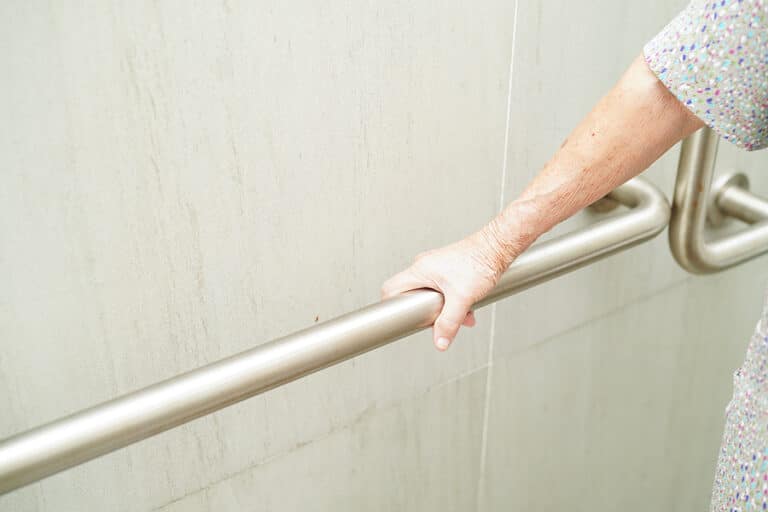Bathing is an important part of general cleanliness. With the aging process, the body might change in ways that require more attention to the bathing routine. For instance, seniors’ skin is drier, thinner, and more fragile. Also, seniors who have trouble moving around or keeping their balance may be less safe in the bathtub or even stepping in and out of the shower. Lastly, seniors often try to avoid asking for help because bathing is personal. However, home care might be required in some cases. In this blog, we’ll talk about bathing tips for seniors, the changes that happen to their skin, and bathroom safety.
Skin Changes That Might Happen With Age
As people age, their skin goes through many changes that can affect their health and appearance. Some of the common skin changes that often happen are detailed below:
Dryness: As skin ages, it tends to create less of its own oils, which makes it dry. Too dry skin can get itchy, painful, and more likely to crack or get rashes.
Thinner: As seniors age, their epidermis, which is the top layer of skin, may get thinner since their bodies may make less collagen and elastin. This can make the skin weaker and more susceptible to injury.
Fragility: As the skin thins, it becomes more delicate and more likely to tear or bruise. Even slight friction or pressure can cause skin damage.
Bathing Tips for Seniors
Even though everyone has different tastes and wants, most seniors can benefit from taking a bath at least twice or three times a week. If they bathe every day, they may strip their skin of its natural oils, which can make it even drier. But if an older adult has problems with incontinence or has other special needs, they may need to bathe more often. The following tips are beneficial for home care to utilize when helping seniors when bathing.
Pay attention to the water temperature: Use warm water instead of hot water because hot water can make skin even drier. Additionally, extreme temperatures can hurt the skin and make it more likely to get burned.
Use gentle soap and body washes: Choose soaps and body washes made for sensitive or aging skin with no scent. Harsh soaps can dry out the skin and make it red and itchy. It’s important for seniors to thoroughly rinse the soap off, whether on their own or with home care. After bathing, seniors should follow up with a moisturizer.
Bathing Safety Tips For Seniors
When assessing safety, make sure to use non-slip mats or sticky strips in the tub or shower to decrease the risk of falls. There should also be a non-slip mat outside the tub or shower so they can stand on it when getting in or out. Additionally, a shower chair or stool can give seniors even better stability.
To increase safety even more, loved ones can install grab bars near the toilet, bathroom, and shower. These bars help seniors get in and out of the bathing area by giving them support and footing. Another addition to the shower itself might be a handheld showerhead that gives seniors more freedom while taking a shower.
Seniors can keep themselves clean and healthy by following these bathing tips and taking safety precautions. In addition, home care can help remind seniors to work toward a consistent hygiene routine.
If you or an aging loved one are considering hiring home care in San Jose, CA contact the friendly staff at Home Care Professionals today. Call (866)-940-4855
- Common Causes for Headaches in the Elderly - June 6, 2025
- Helping Seniors Manage the Physical Effects of Loneliness - May 29, 2025
- The Importance of Eating Well for Alzheimer’s Patients - May 19, 2025




